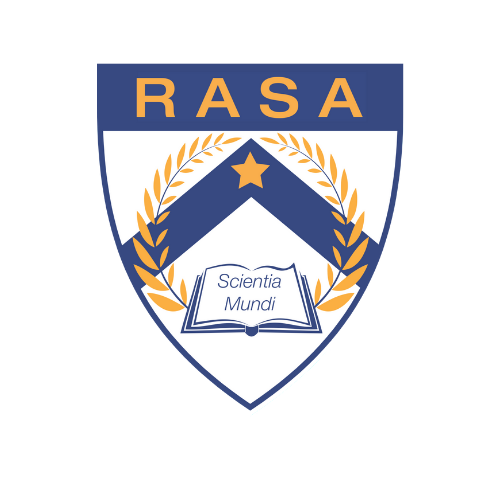Preschool & Junior Kindergarten
RASA’s Early Years Programme is comprised of our Preschool (3-4 year olds) and Junior Kindergarten (4-5 year olds). Class sizes are kept small with multiple teachers per class. Students spend time learning through play-based activities and exploring four Units of Inquiry throughout the year. Our lead and assistant teachers can also divide the groups to provide differentiated instruction in many of the subject areas offered at RASA (math, language arts, and science). Foreign language, art, and music are taught by specialist teachers.
Curriculum
Similar to the elementary grades, the IB-PYP curriculum offers PS/JK students the opportunity to explore four transdisciplinary themes throughout the year. Students and teachers work together to identify questions, explore answers, and link their knowledge across subject areas.
Preschool Curriculum
Reading/Language Arts
Language and vocabulary development in all aspects of classroom life
Role and collaborative play
Developing listening skills in circle time and discussions
Encouragement of a love of books and response to stories from a wide variety of genres
Pre-writing, pre-reading, and pencil skills
Letter recognition
Drawing, mark-making, and emergent writing
Foreign Languages
Introduction of foreign language through songs and action rhymes
Simple greetings and phrases
Vocabulary introduction and development
Counting
Stories and tales
Role play and games
Mathematics
Rote counting and concept of one-to-one correspondence
Number recognition from 0 to 10
Use of numbers in everyday experiences and play
Match or sort to one or more attributes
Begin to describe 2D shapes and use comparative language (big/small, long/short)
Introduction to simple graphs as a way of explaining data
Science
Topics
Living and Nonliving Things
Food Sciences
Skills
Observational skills
Prediction
Questioning
Sensory play
Tool use
Explaining thinking
Physical Education/Health
Units
Slow and Fast Movement
Controlling Movement and Spatial Awareness
Cooperative Games
Track and Field - running, skipping, hopping, galloping
Health Focus
Safety in the gym and on the playground
Cooperation and sharing
Moving the be healthy
Dramatic play
Visual Arts
Use art to express feelings and to create and explore ideas
Make marks, imagine, and represent with a variety of tools and materials
Investigate and experiment with color, form, shape, and texture
Produce 2D and 3D artwork
Respond to and appreciate art from a variety of sources and cultures
Social Studies
Topics
Personal Life Stories
Feelings
Needs vs. Wants
Skills
Following directions and rules
Appropriate ways to communicate
Making good choices
Friendships
Music
Enjoy and appreciate, listen, and move to a wide variety of music
Explore vocal and non-vocal sounds and create sound effects
Use percussion instruments to develop a sense of rhythm
Junior Kindergarten Curriculum
Reading/Language Arts
Use of language to reflect and communicate information and ideas in a variety of contexts
Listening skills and instruction following
Repetition and recall of familiar stories and problems
Anticipation and prediction in stories
Response to a wide variety of genres and authors
Pre-writing and pre-reading skills
Letter recognition and phonic awareness
Emergent writing and inventive spelling
Letter formation and writing own name
Drawing of pictures to tell stories and record events
Foreign Langauges
Introduction of foreign language through songs and action rhymes
Simple greetings and phrases
Vocabulary introduction and development
Counting
Stories and tales
Role play and games
Mathematics
Counting and consolidation of one-to-one correspondence through concrete use of numbers in the school day
Number recognition and formation
Begin to use math to solve problems in class
Naming 2D and 3D shapes
Sorting to two or more attributes
Use of graphs and sets to display simple data
Science
Topics
Five Senses
Measuring Systems
Skills
Observational skills
Record observations
Questioning
Use of simple scientific equipment, e.g. magnifying glasses
Estimation
Cause and effect
Physical Education/Health
Units
Slow and Fast Movement
Controlling Movement and Spatial Awareness
Cooperative Games
Track and Field - running, skipping, hopping, galloping
Health Focus
Safety in the gym and on the playground
Cooperation and sharing
Moving the be healthy
Dramatic play
Visual Arts
Use art to express feelings and to create and explore ideas
Make marks, imagine, and represent with a variety of tools and materials
Investigate and experiment with color, form, shape, and texture
Produce 2D and 3D artwork
Respond to and appreciate art from a variety of sources and cultures
Social Studies
Topics
Safety
Stories
Skills
Following directions and rules
Safety at home, school and in the community
Forms of communication
Appropriate ways to communicate
Making good choices
Music
Enjoy and appreciate, listen, and move to a wide variety of music
Explore vocal and non-vocal sounds and create sound effects
Use percussion instruments to develop a sense of rhythm

